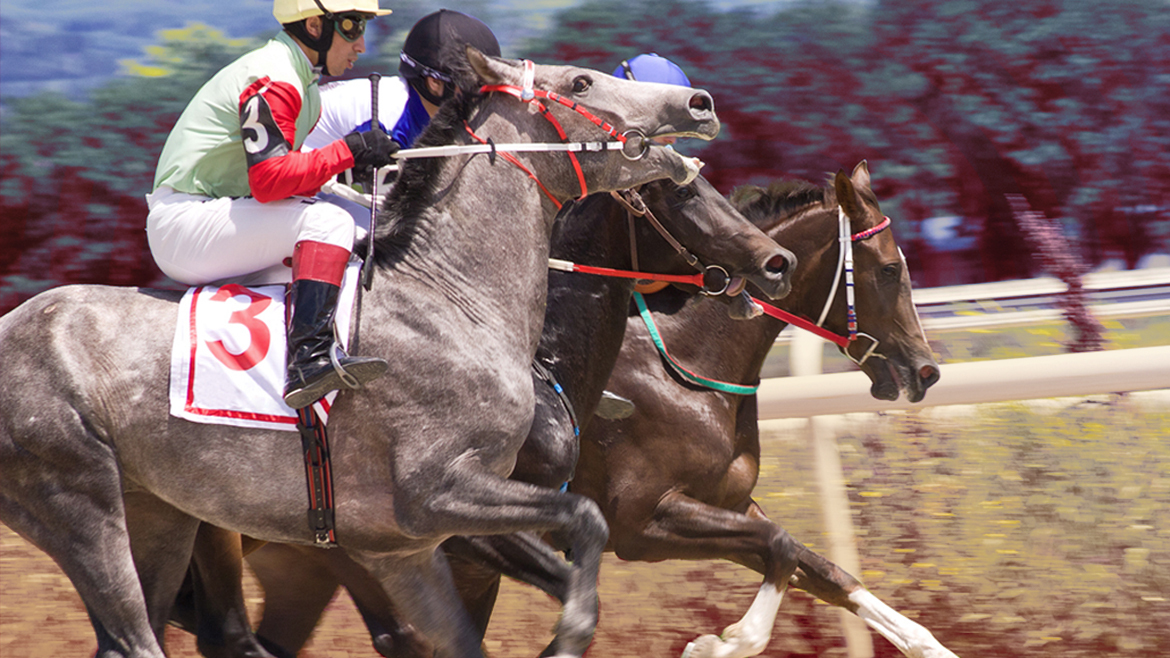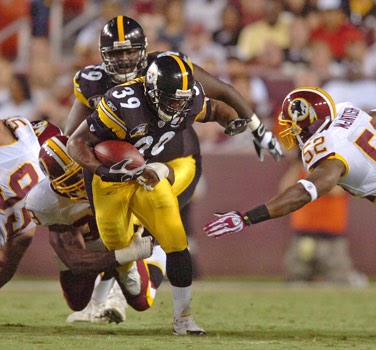“The 360” shows you diverse perspectives on the day’s top stories and debates.
What’s happening
Seven horses died in the leadup to last week’s , dampening the excitement around the nation’s most storied horse race and adding new fuel to debates over whether the sport of horse racing can — or should — survive into the future.
, where the race was held, released a statement saying there was “no discernible pattern” to the incidents. Several of the horses were euthanized after suffering severe leg injuries, including two that were put down just hours before the Kentucky Derby was held. Safety concerns also led the pre-race favorite, a 3-year-old colt named Forte, to be scratched from the Derby, setting the stage for a 15-1 long shot, Mage, to win the main event.
Horse deaths were also an issue at the , an extraordinarily popular steeplechase held in England earlier this month. More than were arrested after they attempted to block the track in response to the deaths of two horses in the days before the event. When the race was finally held, a third horse died after suffering an “unrecoverable injury” on the course’s first jump.
Outcry over fatal accidents is nothing new for horse racing, but the “sport of kings” has faced increased pressure over the past few years, following at California’s Santa Anita Park in 2019. The following year, Congress passed the Horseracing Integrity and Safety Act in an effort to establish for the sport. Under the act, a new slate of safety regulations, including limits on how many times jockeys are allowed to whip horses during a race, went into effect last year. A separate set of anti-doping rules is scheduled to kick in later this month.
Why there’s debate
Animal rights groups have long called for horse racing to be banned, but the recent spate of deaths at the United States’ most prestigious race has also inspired less idealistic viewers — including former fans of the sport — to argue that it has no place in a modern world that values the lives of animals. They make the case that such flaws as rampant doping, lack of accountability and selective breeding to create faster — but more fragile — horses are so deeply ingrained that no new set of rules could ever make it truly safe.
But defenders of the sport say recent reforms are working, as evidenced by a in the rate of fatal accidents over the past dozen years. They argue that these and future changes will make the sport dramatically safer if given the time to work. Some more defiant fans say the fact that more than 150,000 people packed Churchill Downs for the Derby shows that a huge share of the population is still enamored with the sport, despite the tragedies that do occur.
Beyond pure morality, others say it may be hard for horse racing to survive financially in the long term if more and more deaths continue to cause its fanbase to shrink. They say the sport is already a shadow of what it once was in terms of its place in the national spotlight and its economic outlook is only likely to get more dire in the future.
What’s next
The next event in horse racing’s famed Triple Crown will be the next Saturday in Baltimore. Mage, the Kentucky Derby champion, is expected to compete as part of an effort to become the first Triple Crown winner since 2018.
Perspectives
Every death will make the sport’s audience smaller, until there’s no one left
“Horseracing is already a niche sport that struggles outside of the big events like the Triple Crown races and the Breeder’s Cup. It’s hard to imagine the sport surviving too many deaths; people generally don’t want to watch blood sports. … Now when I watch a horse race, I don’t root for the horses in an exacta box to finish first and second. I root for them to make it to the barn alive, and I hold my breath as they thunder down the stretch.” — Joseph Gerth,
No reforms can fix a sport built on exploitation and abuse
“The problem with regulating horse racing as a sport is that it treats it as a game, in which infractions can be remedied with simple penalties, rather than a fundamental violation of animals’ autonomy and well-being.” — Brian Kateman,
Racing really is trying to change, but it’s too early to say whether the sport can be saved
“It had been a week in which racing either drifted ever closer to irrelevance and possibly extinction, or just maybe took steps to save itself. … Perhaps those measures helped in some way, or perhaps we won’t know for months or years, because the reclamation of racing is a long game.” — Tim Layden,
Nothing will change as long as the money keeps flowing
“Racing will never be banned — there is too much money to be made from it, particularly as gambling becomes easier across the US. But things could be very different if only the racing world was willing to change. There are many within the industry who care well for horses, envision a better sport and long for change. But, like me, they won’t be betting the industry will change for the better anytime soon. For too many in the racing [world], a horse is just a moneymaking machine.” — Elizabeth Banicki,
Horse racing still has far more fans than critics
“It’s nothing new when different people want (or don’t want) different things, which has led to this clash and demand for change. But it is entirely one-sided in size and clamour right now, with those enjoying the proceedings vastly outweighing those fighting not just for significant change, but in some cases for an end to the sport itself.” —
Too many fans are willing to overlook the suffering that happens for their entertainment
“The sport has this mythological aura to it because it’s been around forever. … And that idealized history gives it a reason to exist and helps create a hold over sentimental sports fans. It’s similar to how people enjoy calling boxing the ‘sweet science’ as if it’s about anything other than a guy’s ability to navigate a concussion for eight to 12 rounds.” — Sean Beckwith,
Accusations of cruelty and indifference toward horses are totally unfounded
“Those outside of racing consider the sport barbaric and archaic and want it outlawed. Those involved with the sport argue the stomach-churning examples of animal cruelty illuminated in [TV] investigations are not representative of the thousands of participants who make up the industry. I’ve been to countless stables, ranging from those belonging to battling bush trainers to the best in the business … and never witnessed anything but a deep respect, even love, for the animal from the trainer and, particularly, the staff.” — Andrew Webster,
The reality may be that there is no truly safe version of horse racing
“Why go on? Animal rights activists have had horse racing in their sights for decades, and this week will only sharpen their arguments. Is it even possible to have a sport of horse racing while protecting the health of the horses? What’s an ‘acceptable’ number of horse deaths?” — Jay Busbee,
The economics of the sport have collapsed
“Audiences for horse racing have shrunk steadily across the decades, as Americans have drifted away from rural pastimes and gained more options for gambling their money away. A day at the track, once the only legal game in town, lost luster compared with garish casinos, online poker, professional sports books, meme stocks, crypto investing — you name it, just pay your money and take your chances on the boardwalk of the 21st century.” — David Von Drehle,
Is there a topic you’d like to see covered in “The 360”? Send your suggestions to the360@yahoonews.com.


